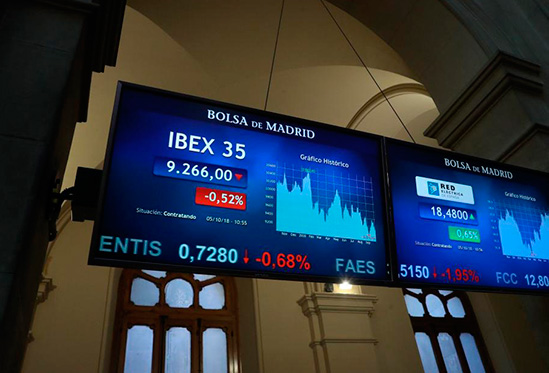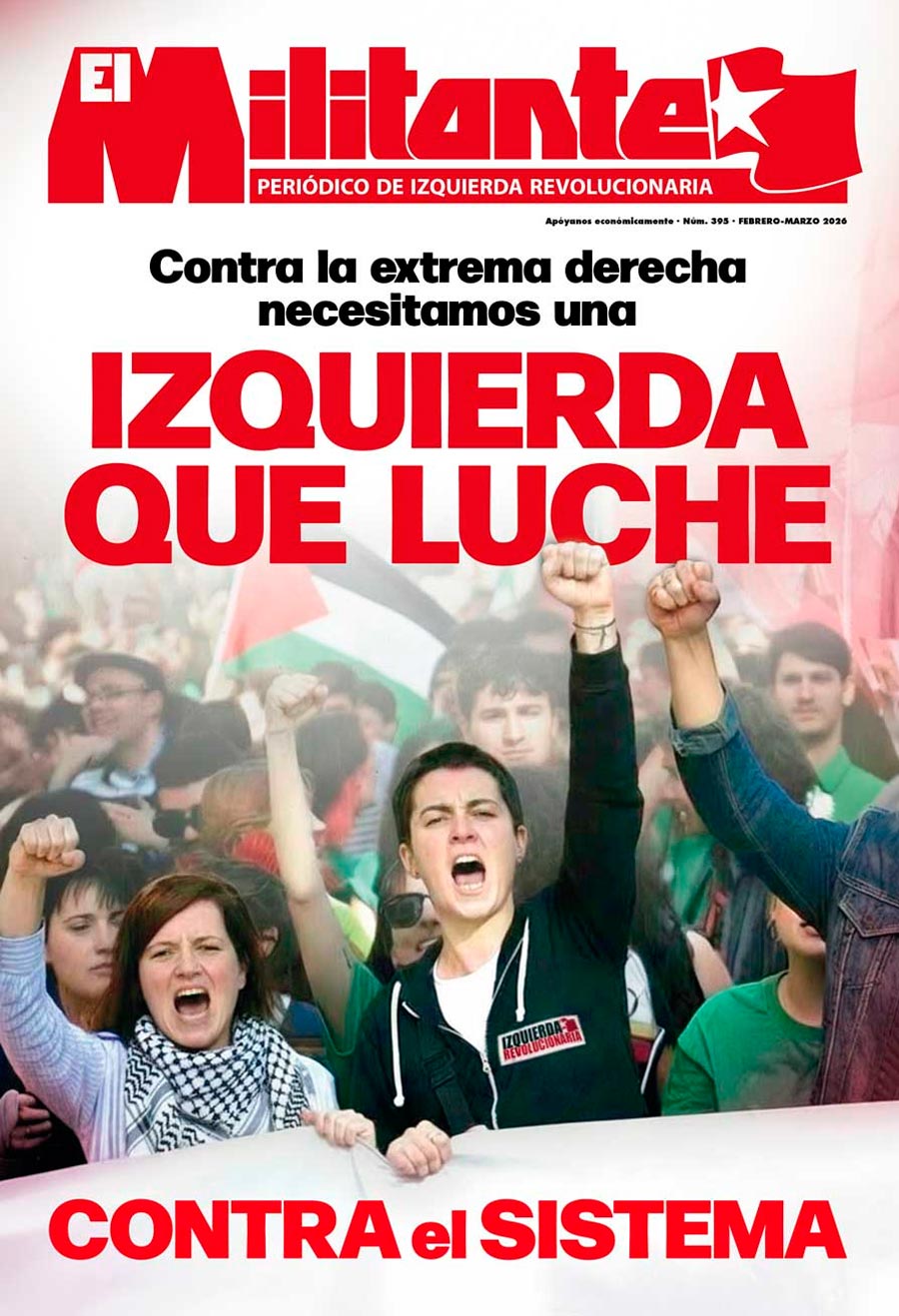The Spanish economy is entering a phase of economic stagnation which could end in another deep crisis, as most bourgeois analysts recognize. The rise of economic nationalism, its materialization in trade wars and tariff conflict between China and the US, the Brexit and the intensification of the political and economic crisis in the European Union, show the difficult way out for the capitalist system, accentuating the weaknesses of the Spanish economy.
In 2018 Spanish GDP grew by 2.6%, twice the European average, but lower than the 3.1% achieved in 2017. This deceleration is consolidated if we take into account the Bank of Spain's forecast for 2020 and 2021: by 1.9% and 1.7% respectively. This slowdown is related to the fragile foundations of Spanish capitalism. On the one hand, the excessive weight of exports that, subject to the volatile situation of international trade, have already fallen by 1.3% year-on-year in January.
Debt reaches historical heights and productivity is in freefall
On the other hand, public debt has reached its historical record in absolute figures: 1.2 trillion euros, 98.7% of GDP according to the Bank of Spain. Barely two points less than in 2016 (100.7%), which means that the numerous cuts carried out by the bourgeoisie supposedly to "balance" and "clean up" the public accounts have served no purpose.
Another fact that illustrates the weakness of the Spanish economy is the fall in the productivity rate: the highest in 20 years, with four consecutive quarters of decline. Moreover, its growth has been zero over the last four years. In the period 2007-2013, productivity grew by 12.4 points. But it was not the result of its strength, on the contrary, it was largely due to massive layoffs and salary cuts after the outbreak of the crisis. Already in 2013-2014 it only increased by 0.3 points, a mere 0.1 in 2016 and by 0% since then.
This decline in productivity, apart from the scarce investment in modernizing the means of production, is influenced by the decreasing weight of industry in economy. If it was 17.8% of the GDP in 2000, in 2008 it went to 14.5% and currently it has dropped to 12.6%. Last year alone, 12,000 jobs have been destroyed in eleven of the main industrial sectors. In May, the automotive and textile sectors left 3,914 and 3,000 workers in the street, respectively.
In this context, the automotive sector, one of the pillars of the Spanish industry -which represents 10% of the GDP and is the second largest vehicle manufacturer in Europe- has entered into a crisis. Mario Armero, President of the Spanish Association of Cars and Lorries Manufacturers, states: "car sales is in recession". Sales have dropped over 11% versus 2018 and they accumulate nine months of decrease.
Banking is another sector that is already making important adjustments despite amassing huge profits. Since 2008, there have been 112,150 layoffs, more than 41% of the workforce at the beginning of the crisis. However, the reconversion continues: Banco Santander - with a net profit of 7,800 million euros in 2018, 18% more than in 2017 - has announced a collective dismissal which will affect 3,223 employees, 10% of the workforce.
Dramatic social situation and more cuts on the way
This shows the solution of the Spanish bourgeoisie to face the situation and the steps they intend to follow, which are the same that reported them so many benefits in 2008: to shift the burden of the crisis on to the workers’ shoulders.
In fact, the consolidation of "productive" collective dismissals is significant. Companies (relying on labor counter-reforms) do not need to allege "losses" to justify the layoffs any more. They can simply justify them with changes in production, modernization of the company or internal reorganization. Thus, massive layoffs for any of these reasons exceeded redundancies on economic grounds in 2018: 39,526 versus 18,934. And this year the trend continues.
At the same time, key aspects such as pensions, which have had a ridiculous increase during the government of Pedro Sánchez, are in the focus of the bourgeoisie. Governor of the Bank of Spain Pablo Hernández de Cos has stated that it is urgent to apply a new pension reform which includes, among others, to raise the effective retirement age.
Meanwhile, though the official unemployment rate is 14% -the lowest rate in the last decade- it is still twice the rate of the best times of Zapatero government. The Labour Force Survey shows a devastating fact: during the first quarter of 2019 there are 19.4 million unemployed compared to the 20.6 million in 2008. That means the level of employment prior to the crisis has not been recovered yet. Add to this the fact that 60% of employees earn less than half the minimum wage, long-term unemployed amounts to 1.5 million and there are 1,053,400 of jobless households -593,000 of which do not receive any income-, and reality is far more dramatic than what the unemployment rate reflects. Devastating poverty data prove it.
According to the Seventh report of the European Anti-Poverty Network, 26 per cent of the population (12.4 million people) live at risk of poverty and 13.5 per cent live at risk of chronic poverty. 33.2 per cent of the population are integrated in society but unstable and 18.4 per cent suffer from moderate or severe social exclusion. More than 30% of workers are considered poor; poverty and social exclusion rate among young people between age 19 and 26 amounts to 34.8%; one in three children under 16 years old is at risk of poverty or social exclusion (31% of the total) and 10.8% are living in a situation of severe poverty. Meanwhile, IBEX 35 companies have earned 37% more than last year so far!
Now the bourgeoisie cries out for a "stable government". They need it not for "the sake of the country" but to apply new adjustments and counter-reforms. Pedro Sánchez and those ministers with extensive experience in defending the interests of capital such as Nadia Calviño, one of the favorites of the Ibex and the CEOE (Spanish Confederation of Employers' Organisations), will be responsible for carrying out these plans. In this equation the social peace policy carried out by the trade union leaders of CCOO and UGT is a key element. However, their submissive attitude towards the powerful and the abandonment of the mobilization are facing their limits.
Turbulent years are coming despite the efforts of the union bureaucracy and the reformist Left to avoid it. The accumulated discontent fed by the insulting increase of inequality and misery and by the overexploitation of the working class will produce a major social outburst that will put Spanish capitalism against the ropes.





















































